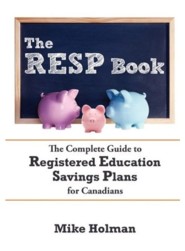Calculating the amount of life insurance you need is a lot like planning for your retirement. You need to figure out your financial goals, calculate how much income is necessary for those goals then figure out how much money you need to make that income happen.
Please note: this only applies to term insurance. Universal insurance (which I don’t recommend by the way) is an entirely different product. Term insurance is insurance where you pay a monthly or annual premium for an amount of insurance for a set amount of time which will be paid into your beneficiary if you die. For example someone might buy $250,000 of insurance which is valid for ten years. If they die within those ten years then the $250k will be paid to the beneficiary or the estate.
Calculate how much life insurance you need
I’ll use myself as the example on this calculation. My wife doesn’t work and we decided that our goal for life insurance was to get enough to ensure that she wouldn’t have to work again. This doesn’t mean retiring in luxury but making enough money to pay the bills and hopefully have a similar standard of living to what we have now.
Annual Living Expenses
First thing to do is figure out how much money is needed to maintain our current lifestyle. We kept track of our expenses for the first six months of this year and determined that our basic living expenses are about $32,000 per year. This does not include mortgage payments or any other debt payments since they will be paid off with the insurance. Since the plan is for my wife not to work and she won’t qualify for any government pensions for quite a few years we need enough insurance to be able to pay off our debts and then generate $32k net income per year which is about $35k gross assuming a portion will be coming from Canadian dividend stocks. I’m assuming that any of the $32k in expenses that are because of me, will be able to cover expenses for our one child. If you have more kids then you might want to increase the annual amount to compensate for this.
Required Portfolio Size for self-insurance
How much do you need to generate $35k per year? The normal figure for retirement planning is to use the 4% rule. I think for this purpose assuming that you can take 5% of a portfolio is safe enough that you won’t run out of money. So therefore $35k is 5% of $700,000. We need enough insurance to make sure that we end up with a portfolio of $700k and no debts. If my wife worked then I would subtract her income from the $35k amount.
Currently we already have a portfolio of $230k and our debts are about $200k.
Therefore: insurance needs = final portfolio amount + debt – current portfolio = $700k + $200k – $230k = $670,000. In fact I have about $750,000 of insurance which is too much.
Summary:
- Calculate a gross income desired according to your financial goals. Use taxtips.ca for guidance regarding taxation amounts.
- Use the following formula: insurance amount = (gross income desired – survivor income) / 0.05 + total debt – current portfolio.
A couple of points. I use the divisor of 0.05 but if you want to be more conservative then use 0.04 (4% rule).
I’m assuming in my example that the beneficiary is reasonably young and won’t collect any type of pension for a long time. If the survivor will be older ie 50+ then you might want to increase the divisor to 0.06 because they will be eligible for government pensions which will eventually reduce the amount of insurance income necessary.
When I talk about taking 4% rule or 5% rule this refers only to the amount of money withdrawn from the portfolio in the first year. Every year after that is the initial amount adjusted for inflation. Ie in the example above, the withdrawal in the first year is $37k. If inflation is 3% then the withdrawal in the second year is $37k + 3% = $38,110. In the third year you would take $38,110 = 3% = $39,250.
You’ll notice that two of the main factors in determining the amount of insurance needed are current debt and current portfolio value. Because of this there is no point in stressing out about the perfect amount of insurance to get because that ideal amount will change every year. This is why you don’t want to get too much insurance – more about that tomorrow. Generally speaking if your debt is going down and your investment portfolio is going up then your insurance needs are going down so if you buy too much insurance today, then in a few years you will have way too much insurance.
Another thing to avoid is to have too much insurance for too long. You might need $750k or even a million dollars according to your plan but you probably don’t need it for 20 or 30 years. Try to figure out how long you need this insurance for and buy accordingly. In my case I bought $500k for 10 years (plus $250k I already had from a group plan) and after that I might only need $250k for about another 5 years or so. Once I’m retired or close to it (hopefully in about 15 years) then I won’t need any insurance at all because our debts should be zero and our investment portfolio will provide all the necessary income.
Why Over Insuring Is Like Buying Lottery Tickets.
More info
